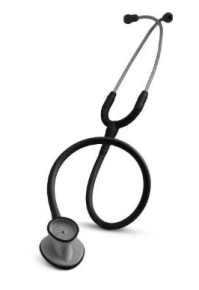Recent analysis by the Comprehensive Error Rate Testing (CERT) initiative of physical therapy claims revealed that insufficient documentation contributed to improper payments issued to providers.
|
|
||||
|
The Centers for Medicare & Medicaid Services (CMS) has once again issued guidance reminding providers that federal law bars Medicare providers from billing a Qualified Medicare Beneficiaries (QMB) under any circumstances. Many healthcare providers and suppliers cheered when Congress did away with the sustainable growth rate (SGR) formula by passing the Medicare Access and CHIP Reauthorization Act (MACRA). No longer did they have to worry on an annual basis if a patch to prevent double digit cuts to reimbursement will be passed. But a new reimbursement methodology under MACRA leaves many practitioners wondering if they will meet the metrics or face payment cuts. The Centers for Medicare & Medicaid Services (CMS) recently launched a demonstration project that will initiate a pre-claim review for home health services. The project seeks to lower a nearly 60 percent claims error rate stemming largely from insufficient documentation. The passage of the Protecting Access to Medicare Act (Act) of 2014 ushered in a new era for Medicare laboratory reimbursement rates not seen in three decades. Recent results from the Comprehensive Error Rate Testing (CERT) Program revealed that the majority of improper payment for laboratory service result from insufficient documentation. This article summarizes important documentation recommendations from CMS. Each year certain providers attempt to enroll in the Medicare program to participate and bill for services. The Centers for Medicare & Medicaid Services (CMS), however, instructs the Medicare contractors that review and process enrollment applications, to deny applications from providers ineligible to participate with Medicare. The Medicare Access and CHIP Reauthorization Act of 2015 (MACRA) made changes to the physician opt-out affidavit requirements. Last year, CMS issued a final rule which requires prescribers of Part D drugs to be either enrolled with Medicare or have submitted an opt-out affidavit to their Medicare Administrative Contractor (MAC) in order for a prescription to be eligible for coverage under the Part D program. See 42 CFR § 423.120(c)(5) and (6). A July Government Accountability Office (GAO) report identified deficiencies in the Centers for Medicare & Medicaid’s Services (CMS) oversight of Medicare audit contractors. The GAO Report further bolstered the long standing provider concerns about the auditing process. Every year the U.S. Department of Health and Human Services Office of the Inspector General (OIG) publishes a work plan that provides industry stakeholders with insight as to the OIG’s new and ongoing auditing and investigative activities in the upcoming year. National Government Services Durable Medical Equipment Medicare Medical Review Department (NGS) has recently published the results of its third quarter prepayment medical review of high-error audit claim. In total, NGS reports, more than half of claims were denied, results in a 65 percent of claims error rate for failing to the required coverage criteria and documentation. The Centers for Medicare & Medicaid (CMS) is updating the CMS 1500 claim form in anticipation of the upcoming changes to the International Classification of Diseases (ICD) system. Each year the U.S. Department of Health and Human Services Office of the Inspector General (OIG) produces a work plan that outlines the agency’s focus for the upcoming year. With a staff of over 1,700 professionals, the OIG conducts investigations, audits, and, among other projects, enters and monitors corporate integrity agreements. Below we discuss some of the highlights from the OIG 2013 Work Plan. The Medicare and Medicaid programs provide health insurance for tens of millions of people. According to Centers for Medicare and Medicaid Services (CMS), the Medicare program alone has 47.5 million beneficiaries and, in 2010, had total expenditures of $523 billion. It is not surprising, therefore, that such large programs invite scrutiny from government auditors and In the fall of last year, the Office of Inspector General (OIG) for the Department of Health & Human Services (HHS) released its Fiscal Year 2012 workplan which identifies new and already-in progress programs of focus for the OIG. You may have heard that Medicaid is a payer of last resort, a requirement that Medicaid providers bill other payers first when Medicaid enrollees have other forms of insurance, such as Medicare. But providers should note that Medicare is not always the payer of first resort. Providers may have heard that they are required to provide in certain instances Medicare beneficiaries with an Advanced Beneficiary Notice of NonCoverage (ABN) but the specifics of the requirements may not be known to everyone. Nowadays State and Federal governments are focused on making healthcare fraud, waste and abuse their top priorities. In furtherance of this goal, the Centers for Medicare & Medicaid Services (“CMS”) announced recently that starting July 1, it will begin using innovative predictive modeling technology to fight Medicare fraud. |
||||

